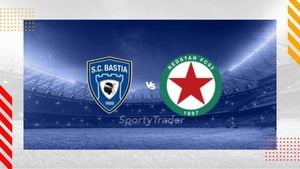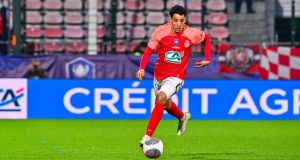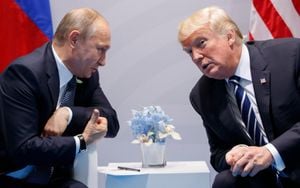International Mother Language Day is set to be commemorated worldwide on February 21, with various events highlighting the importance of linguistic diversity and the promotion of multilingualism. Established by UNESCO in 1999, the observance aims to promote unity through diversity and raise awareness of the significance of mother languages across the globe.
A range of activities are organized within the UNESCO Cities of Literature, reflecting local cultures. Barcelona, for example, is set to host a work session for librarians focused on how to integrate Arabic literature more inclusively within public libraries. The session, organized by the Libraries Consortium of Barcelona and the local city council, is meant to promote diversity and intercultural dialogue through literary offerings.
Meanwhile, Manchester City of Literature will celebrate with the appointment of two new Multilingual City Poets, Charlotte Shevchenko Knight and Nóra Blascsók, to showcase the city’s language diversity. More than 22 events, including language tours and multilingual spoken word performances, are planned for the day. Many events will be accessible online, ensuring greater participation.
Over in Quebec City, Canada, local literary artists whose ancestral languages are not French will gather for roundtable discussions. The participants, including noted figures like Andrée Levesque Sioui and Shaoyu Xu, will explore how their linguistic backgrounds have impacted their experiences as writers, fostering greater community engagement and awareness of cultural diversity.
Dunedin, New Zealand, has announced the publication of “The Heat is On: Young Writers on the Climate Crisis,” featuring contributions from young writers from various Cities of Literature. This collection reflects the urgent perspectives of the youth on climate issues, showing their commitment to addressing this global challenge through literature.
Further festivities will occur at Exeter City of Literature, UK, beginning the week prior to the official date with multilingual translation workshops aimed at fostering translingual identities. The highlight includes the special Spanish-language conversation group titled “Estamos vivos porque estamos en movimiento: translating Latinx identity and culture,” which will invite speakers of various Hispanic and indigenous languages to discuss their cultural heritage.
On February 21, Kuhmo City of Literature, Finland, will host Jyrki Korpua for lectures about the role of languages, adding another layer of celebration to the observance.
Significantly, the Silver Jubilee Celebration of International Mother Language Day took place recently at the United Nations Economic Commission for Africa, marking 25 years of advocacy for linguistic rights worldwide. Esteemed works, such as those by Abolqasem Ferdowsi, celebrated the rich cultural heritage tied to language.
Chile has also planned informative discussions on Indigenous languages, spearheaded by Centro Cultural La Moneda, focusing on the linguistic rights of Indigenous peoples in the region. This event will feature prominent leaders and activists, like Elisa Loncon Antileo, discussing the challenges faced by Indigenous communities and the importance of promoting their languages. A special campaign will also be launched during the meeting to raise awareness and inclusivity of Indigenous languages.
Overall, International Mother Language Day serves as both a celebration and a reminder of the importance of preserving linguistic diversity. By participating within their communities and honoring their mother languages, individuals globally can reflect on their heritage and identity, ensuring they remain vibrant and recognized. Communities are invited to engage with these events, emphasizing the shared experience of language as central to cultural identity.
Through various local and global efforts, the day stands as a beacon for promoting the relevance of languages—an endeavor which is not only about communication but is intrinsically tied to cultural expression, historical narratives, and the development of identity.



